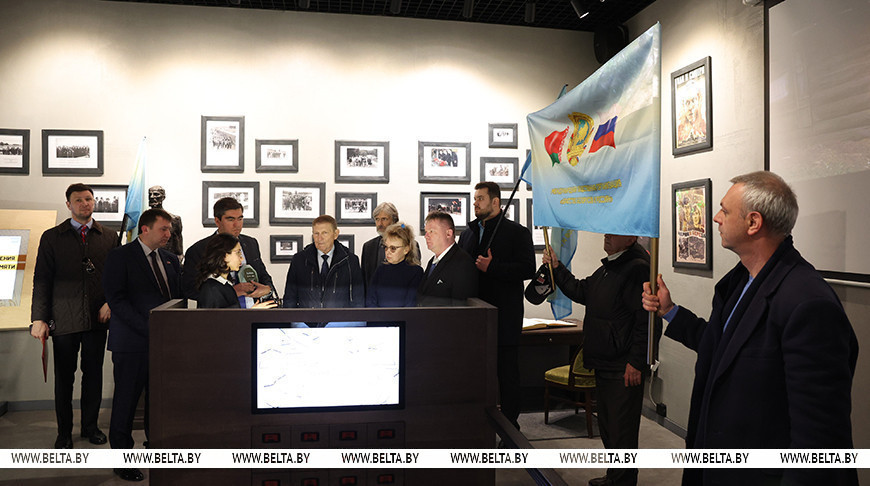Kalište is a former rural settlement in Banska Bystrica district of Slovakia, which was completely destroyed by the Nazis along with its inhabitants on 18 March 1945 and which was not restored after the Second World War. The tragedy is commemorated in the memorial complex with the same name, Irina Freistakova, a member of the Slovak delegation, told BelTA.
“For Slovaks, Kalište is as much a symbol of the tragedy of World War II as Khatyn is for Belarusians. Commemorative ceremonies and mourning events are held on the grounds of this complex. We honor the memory of the victims,” Irina Freistakova said.
“Our delegation brought soil from the places sacred in Slovakia, so that people know about the tragedy of our country, our burned settlements and dead people,” Irina Freistakova emphasized. “Slovakia knows and remembers the tragedy of the war. We keep the monuments tidy and do what we can. Although the situation in politics is difficult.”
She noted that last year she was in Minsk at the events in connection with the 80th anniversary of the liberation of Belarus from Nazi invaders, visited Khatyn. And then an idea came up to bring such capsules with soil from Slovakia. “Khatyn and Kalište shared an equally tragic fate. These are equally tragic and unforgettable chapters in the history of our two countries,” the member of the delegation said.
The Slovak delegation is set to give a capsule with soil taken from the grounds of the country’s largest war cemetery in Michalovce (Eastern Slovakia) to All Saints Memorial Church in Minsk.
“Michalovce is the place of the largest war cemetery. About 18,000 Red Army soldiers were buried there. The government has earmarked funds for the renovations ahead of the 80th anniversary of the Victory in World War II,” Irina Freistakova emphasized.
An official delegation of the Spišská Nova Ves district administration, Slovakia is visiting Belarus on 20-25 March. The visit is held at the invitation of the Belarusian veteran organizations.

